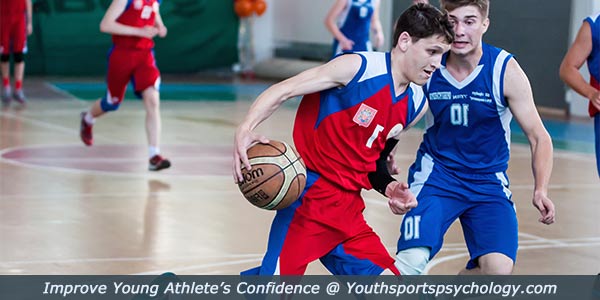
Help Sports Kids Develop a “Give it Your All” Mindset
Do your athletes ever complete a competition and regret that they didn’t put forth enough effort?
When sports kids lose and feel as if they didn’t give 100%, they can feel crushed.
Losing generally isn’t one athlete’s fault. Many issues contribute to the outcome of a game. It could be the officiating, the opponents’ high-performance level, competition conditions or injuries.
Kids can’t control these issues, but they can control their attitude, effort and focus.
When kids give 100%, it’s easier for them to accept defeat or an unfavorable outcome. But when they feel as if they gave up or held back, it’s harder to accept defeat.
Basketball coaches tell their players, “Leave it all on the court… Chase down balls. Don’t concede any points. Push through fatigue.”
The expression “leave it all on the court” means kids should give it their all. They should give all their focus and all their effort until the very last second of a competition.
When kids give 100%, it doesn’t guarantee victory. But it helps kids feel as if they performed their best and don’t regret the results.
Why do some young athletes put forth less than their best?
They may be:
- Afraid of making mistakes or being embarrassed for not performing well.
- Anxious and playing tight, nervous and tense.
- Feeling frustrated with mistakes and tanking.
- Suffering from nagging injuries.
- Fear of trying hard and losing anyway.
When kids experience fear, anxiety or lack of focus, they’ll likely have many of their worst worries come true. Not only will they feel bad about the loss, but they will feel even worse because they gave less than their all.
Championships are won or lost by the level of an athlete’s effort and focus.
In Game 5 of the NBA Finals, the Los Angeles Lakers were just one game away from winning the NBA Championship against the Miami Heat. Miami guard Jimmy Butler was not willing to concede the championship.
Instead, Butler led the Heat to a season-saving 111-108 victory over the Los Angeles Lakers and finished the game with 35 points, 12 rebounds, 11 assists, five steals and a blocked shot.
Butler played in all but 48 seconds of the game. Butler was drained physically and mentally during the last minutes of the game, but continued with his high effort until the final whistle.
“I left it all out on the floor along with my guys and that’s how we’re gonna have to play from here on out,” he said. “That’s what really, really, really great players do. But we ain’t backing down. We ain’t shying away.”
Giving your all is a mindset that young athletes must choose before a competition. It is the mindset of not backing down, not shying away and “leaving it all out on the court” so young athletes can rise to the occasion and yield their best performance.
Sometimes, to fight through fatigue or other adversity, kids need to want to meet their goals more than giving in to challenges. In these instances, sports kids can use self-talk to help them keep going.
“Finish strong,” “Go for it,” or “No regrets,” are some of the phrases kids can tell themselves.
Battling until the end of a competition and “giving it my all” is a mindset that kids choose. It produces their best performance. And even if they lose the game, it builds mental toughness and allows them to learn.
Related Articles on Youth Sports:
- How Participating in Sports Gives Kids an Edge in Life
- Help Your Athletes Close out Competitions
- Is Your Sports Kid a Gamer or Choker?
*Subscribe to The Sports Psychology Podcast on iTunes
*Subscribe to The Sports Psychology Podcast on Spotify
The Composed Sports Kid

“The Composed Sports Kid” audio and workbook digital download program for young athletes and their parents or coach helps kids cope with frustration and anger in sports. Help your sports kids learn how to manage expectations and let go of mistakes so they can keep their head in the game.
The Composed Sports Kid system is really two programs in one–one program to train parents and coaches how to help their kids practice composure, and one program that teaches young athletes–ages 6 to 13–how to improve composure, let go of mistakes quickly, have more self-acceptance, and thus enjoy sports more!
